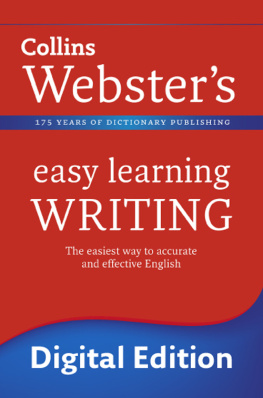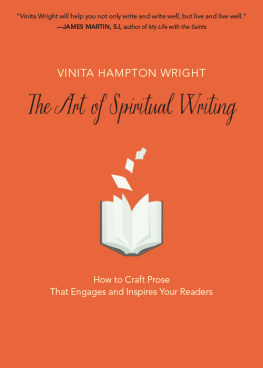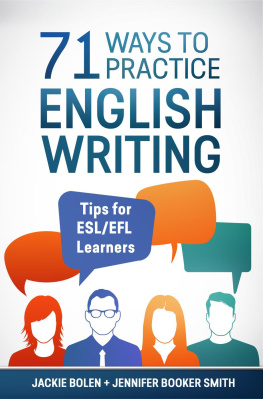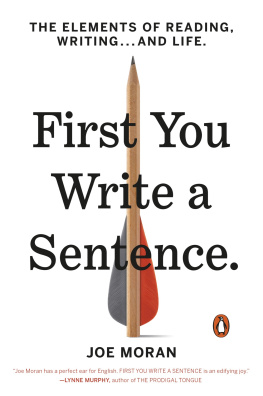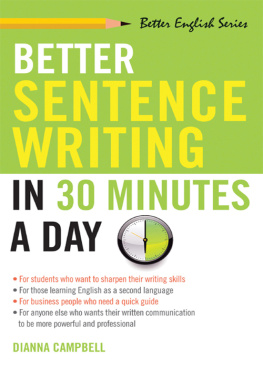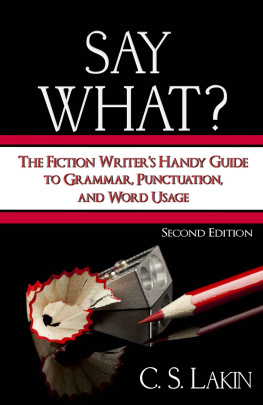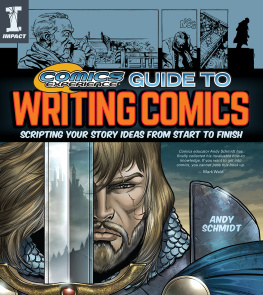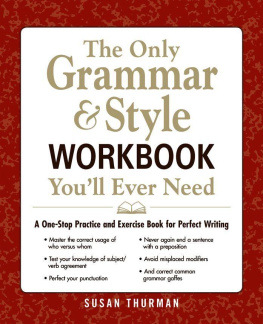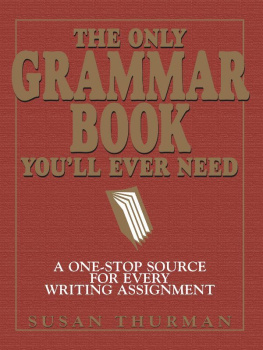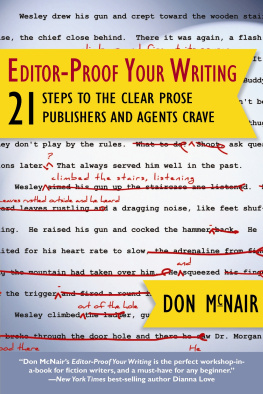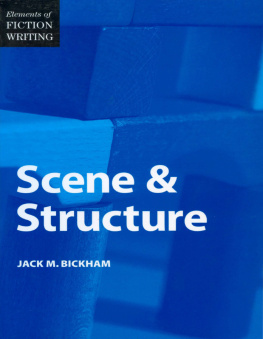Contents

The Elements of Active Prose
Writing Tips to Make Your Prose Shine
Tahlia Newland

The Elements of Active Prose: Writing Tips to Make Your Prose Shine
Copyright 2014 Tahlia Newland. All rights reserved
Published by AIA Publishing
Print ISBN: 978-0-9942192-2-0
This book or any potion thereof may not be reproduced or used in any manner whatsoever without the express written permission of the publisher or author except for the use of brief quotations in a book review. Please purchase only authorised electronic editions, and do not participate in or encourage electronic piracy of copyrighted materials. Your support of the authors rights is appreciated.
Cover design by Velvet Wings Design.
Edited by Kevin Berry.
Foreword
This book is the result of my search for an answer to the question: what makes good prose? I gleaned the information in this book from various places: workshops I attended, courses I undertook, books and blogs I read, and mainstream publishers, authors and editors whom I worked with and talked to. I searched for the answer over a period of five years while I wrote and refined my Diamond Peak Series. Even when the manuscript of the first book, Lethal Inheritance , was doing the query rounds of the big publishers with my agent, Debbie Golvan, I continued my study and line edited my book again. I found pearls in a variety of places, but never did I find all the vital information in one place.
When I began writing reviews of both mainstream and indie published books, I discovered that many indie books lacked the quality of prose I saw in mainstream fiction. Though the level of copy editing was adequate in someand not so adequate in othersfew of them had been line edited, hence the problem. When I began doing manuscript appraisals and, after gaining an editing qualification, offering editing services, I shared the tips Id learnt with my clients. Since the same issues repeated themselves, I wrote notes to save me rewriting the information every time I needed to explain something. Those notes, written to address the common issues I found in authors works, became more comprehensive over time, and now form the basis of this book.
I will only touch lightly on the big picture aspects of fiction writing, and apart from clarifying a few confusions that I see often, I wont be dealing with grammar and punctuationplenty of books cover those topics. This book focuses primarily on line editing skills
I am grateful to the many teachers Ive had and would, in particular, like to thank Australian editor Selena Hannet Hutchins for her excellent tuition. Thank you also to the many on-line sources written by a variety of tutors more knowledgeable than I, in particular, Kirsten Lamb, Roz Morris, Jacqui Murray and Jamie Gould for their informative blogs on a variety of writing topics. To Mary Maddox, Brent Meske, and Angela M. Blount who read this book before publication and gave valuable suggestions, thank you. And a special thanks to Angela for her concise summary of the elements of a professional book review. I would also like to thank the Awesome Indies reviewerstoo numerous to mention individually, but you know who you arefor their support in my writing journey and in particular for helping me to help authors to improve their writing.
Also a thank you to Kevin Berry for his excellent editing job and his encouragement to extend the book beyond my initial ideas.
I hope you find this book helpful, for that is my intention in writing it.
Introduction
Before we get down to details, Id like to set the background against which I wrote this book. Some authors can get quite emotional about anything that looks remotely like a rule, and Id like to reassure these authors that dictating a set way of writing is not my aim here. These points are purely for authors education, something for them to understand so that they can apply these tips where and when appropriate.
What Makes Good Prose?
Beautiful writing is when every word is the right word, in its right place and there for a reason. There is nothing extraneous. The words flow so smoothly that the reader is transported beyond the words. They even forget they are reading. Elizabeth Weiss, publisher at Allen and Unwin, Australia.
Good writing is supposed to evoke sensation in the reader not the fact that it is raining, but the feeling of being rained upon. E.L. Doctorow, author of Billy Bathgate .
Writers we in time call great tend to follow all the rules of good writing. Spare, interesting, easy to read, easy to understand to the point we forget that we are reading. G J Berger, award-winning author of South of Burnt Rocks, West of the Moon .
Everyone has a different answer to the question of what makes good writing, but all point to the same elements: a smooth read with nothing that pulls you out of the story or makes you aware that youre reading, well-chosen words and no extraneous ones, and a variety of sentence structures with a clear meaning and interesting rhythm.
What isnt good writing is anything that makes you go eh? or huh? or that seems clumsy. Anything that makes you aware of the words is not good writing, and that includes anything that comes across as pretentious. Thats why writing coaches advise not to try to impress and not to use big words when simple ones will do.
The next question is: How do you write good prose? But answering this question raises a few issues, because as soon as you start to lay out guidelines, people will turn them into rules and stick by them even when they arent appropriate, so we need to address this first.
Rules or Guidelines?
The human mind has a tendency to see things dualistically. We assume that if this thing is good, then its opposite must be bad, and if this thing is bad, it must always be bad. We also have a tendency to solidify ideas so that a general suggestion, in our mind, becomes a hard and fast rule. If we are to avoid these traps, we need to examine our assumptions.
Writing is an area where we can see this at work. Don't consider these principles as prescriptive rules to be followed slavishly. They are guidelines to help us make our prose better, and they can be ignored when character voice dictates that it would sound wrong.
If you think of these tips as rules, you may find them restrictive. You may feel that if you pay them too much attention your creativity will be compromised, but the restriction is in your mind, not in the guidelines themselves. The idea is to use these guidelines in a way that will help, not hinder, you. Dont concern yourself with them on your first draft when youre just trying to get the story out while the inspiration is flowing. Use them at the self-editing stage to turn your telling into showing, to tighten up your prose and make it more interesting, and use them as a diagnostic tool to help you work out why a scene isnt as powerful as it should be.
What Im sharing here are guidelines, not rules; though how you apply them is important. However, there are rules for grammar and punctuation, and if you break them, you run the risk of being misunderstood; for example, when your adjectival clause doesnt relate to the right verb. Youll also look like an amateur and have your book rejected in disgust by anyone who recognises your mistakes.
At the same time, some aspects of punctuation are flexible, and it is important to know where those areas are. You must know the difference between its and its, their and there, reign and rein and so on, but in some respects, UK English usage differs from US English usage, and publishers style guides vary in some areas. For example, UK/Australian English style guides allow fewer commas than the more prescriptive Chicago Manual of Style , and leave out many of the periods that Americans use in abbreviationsIm using Australian conventions here. The important thing is to be consistent with your usage throughout, and the overriding factor in correctness is whether the usage makes the meaning clear or obscures it, and whether it adds or detracts from the flow and rhythm of the reading experience.


